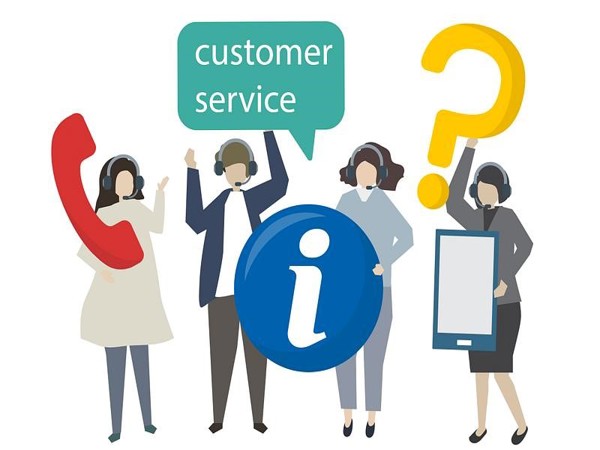In today’s competitive business landscape, exceptional customer service is not just a luxury but a necessity. It can make or break your business, influencing customer loyalty, brand reputation, and overall success. Here’s why prioritizing customer service is crucial and how to implement it effectively.
1. Customer Retention and Loyalty
Exceptional customer service plays a critical role in retaining customers and fostering loyalty. When customers feel valued and appreciated, they are more likely to return and make repeat purchases.
Steps to Implement:
- Personalize Interactions: Address customers by their names and remember their preferences.
- Follow Up: After a purchase or service, follow up to ensure satisfaction.
- Reward Loyalty: Offer loyalty programs or discounts to returning customers.
Example: A local café that remembers a customer’s favorite coffee order and offers a discount after a certain number of visits encourages repeat business and builds customer loyalty.
2. Positive Word-of-Mouth and Referrals
Satisfied customers often share their positive experiences with friends and family, leading to valuable word-of-mouth referrals. This organic promotion can significantly enhance your brand’s visibility and credibility.
Steps to Implement:
- Encourage Reviews: Ask satisfied customers to leave positive reviews on platforms like Google or social media.
- Referral Programs: Create a referral program where existing customers receive rewards for referring new clients.
Example: A beauty salon that provides exceptional service might encourage clients to refer friends in exchange for discounts on their next appointment, thereby expanding their customer base.
3. Competitive Advantage
In a crowded market, businesses that excel in customer service stand out from the competition. It’s often the deciding factor between choosing your business or a competitor’s.
Steps to Implement:
- Train Your Staff: Invest in comprehensive training programs to ensure employees understand the importance of customer service and how to deliver it effectively.
- Monitor Performance: Use customer feedback and service metrics to identify areas for improvement.
Example: A tech store that provides thorough product explanations, quick troubleshooting, and friendly service can differentiate itself from competitors who may not offer the same level of support.
4. Handling Complaints and Resolving Issues
Effective customer service involves managing complaints and resolving issues promptly. Addressing problems effectively can turn a negative experience into a positive one, demonstrating your commitment to customer satisfaction.
Steps to Implement:
- Listen Actively: Allow customers to voice their concerns without interruption.
- Resolve Quickly: Address complaints promptly and offer solutions or compensations when necessary.
- Follow Up: Ensure that the issue has been resolved to the customer’s satisfaction.
Example: An online retailer that promptly addresses a shipment issue by offering a refund or replacement demonstrates a commitment to resolving problems and keeping customers happy.
5. Building a Strong Brand Reputation
Consistent and exceptional customer service helps build a strong brand reputation. Positive interactions contribute to a favorable image and can be a powerful differentiator in the market.
Steps to Implement:
- Consistency: Ensure that all customer service interactions are consistent in quality across different channels (in-store, online, phone).
- Brand Values: Align your customer service practices with your brand’s core values and mission.
Example: A sustainable fashion brand that offers transparent customer support and adheres to eco-friendly practices reinforces its reputation as a responsible and trustworthy company.
6. Increasing Customer Lifetime Value
Customer service impacts the overall lifetime value of a customer. Satisfied customers are more likely to make additional purchases, explore other products or services, and spend more over time.
Steps to Implement:
- Upsell and Cross-Sell: Use customer service interactions to suggest relevant products or services.
- Personalized Recommendations: Tailor product suggestions based on past purchases and preferences.
Example: An e-commerce store that offers personalized product recommendations based on previous purchases can increase the likelihood of additional sales and higher customer lifetime value.
7. Gaining Valuable Feedback
Customer service interactions provide valuable insights into customer needs, preferences, and pain points. This feedback can guide product development and business strategy.
Steps to Implement:
- Request Feedback: Encourage customers to share their thoughts on their experience.
- Analyze Feedback: Regularly review feedback to identify trends and areas for improvement.
- Act on Insights: Implement changes based on customer feedback to enhance your offerings.
Example: A restaurant that solicits feedback through post-meal surveys can use this information to improve its menu and service, ensuring a better dining experience for future customers.
8. Enhancing Employee Morale and Engagement
A focus on customer service often leads to improved employee morale. When employees see their efforts directly impacting customer satisfaction, it can lead to increased job satisfaction and engagement.
Steps to Implement:
- Recognize Efforts: Acknowledge and reward employees who provide exceptional customer service.
- Provide Support: Offer training and resources to help employees excel in their roles.
Example: A retail store that regularly recognizes and rewards employees for positive customer interactions fosters a motivated and engaged team, leading to better service for customers.
9. Building Trust and Credibility
Trust and credibility are essential for long-term success. Excellent customer service helps build trust by demonstrating that you value and respect your customers.
Steps to Implement:
- Be Transparent: Provide clear information about products, services, and policies.
- Honor Commitments: Ensure that you meet or exceed customer expectations and promises.
Example: A financial services provider that offers clear explanations and reliable support builds trust with clients, enhancing its credibility in the industry.
10. Driving Business Growth
Ultimately, exceptional customer service contributes to overall business growth. It leads to higher customer satisfaction, increased referrals, and a stronger market position.
Steps to Implement:
- Set Goals: Define clear customer service goals and metrics to measure success.
- Continuously Improve: Regularly assess and refine your customer service practices to drive ongoing improvements.
Example: A subscription box company that consistently delivers outstanding customer service can see increased subscriber numbers and higher retention rates, driving overall business growth.

.jpg)







